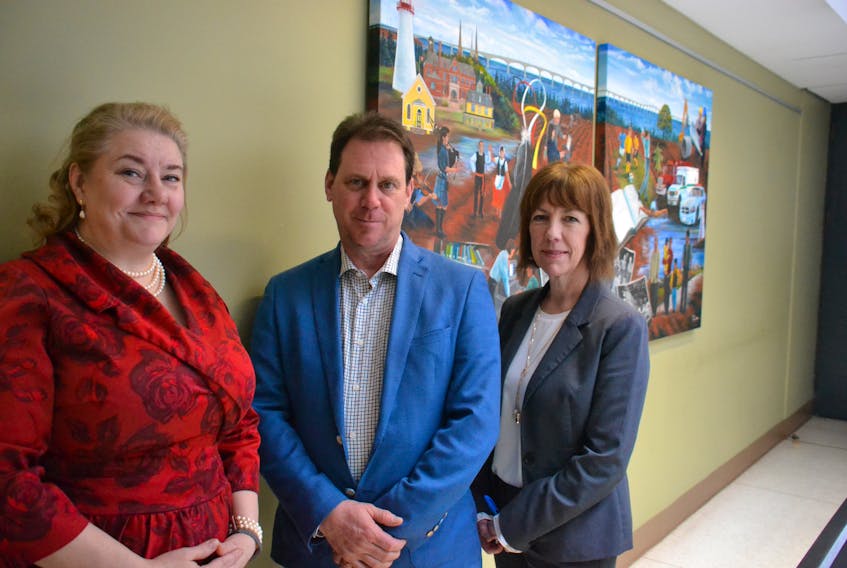CHARLOTTETOWN, P.E.I. — P.E.I.’s top mental health and addictions decision-makers say they are hearing the frustrations from those who have had difficulty navigating the system.
But Verna Ryan, chief administrative officer for mental health and addictions, and Dr. Heather Keizer, chief of mental health and addictions, also say there are some pressures on the Island’s mental health system that are beyond their control.
Last week's forum, dubbed a "call to action" by organizers, drew hundreds to The Guild. The event featured frank, first-hand testimony from several Islanders who have struggled through severe addictions and mental health issues. Several speakers, including organizer Ellen Taylor, offered scathing criticism of P.E.I.’s systems of support for mental health and addictions.
Taylor and others said wait times for beds at detox or treatment facilities, as well as a lack of addiction counsellors, were allowing many to slip through the cracks.
"It's a really powerful and emotional portrayal of people's experiences with addictions," Ryan said of the forum.
"One of the strong things that I heard coming through, that resonated with me, was the appreciation of our staff and current services. That was really positive because we have done many innovations within the service to work with what we have.”
Ryan acknowledged that mental health and addictions programs on P.E.I. have lacked co-ordinated investment in the past. She and Keizer also said that health staffing and wait times were an issue.

However, she said mental health professionals have also been dealing with a high rate – between 30 and 40 per cent – of individuals who do not show up for appointments.
“That's an hour that someone else didn't get that care. That is extremely valuable time,” Keizer said.
Ryan said a similar rate of appointment no-shows was also seen in primary care.
"We used to send letters, and that wasn't working out so well," Ryan said.
Ryan said staff now sends texts and emails as reminders.
Ryan also said there needs to be more acceptance of treatments that are best practices, such as group therapy.
Keizer said some individuals resist going to group therapy. This can strain limited staff and resources within a health system.
“You can appreciate how this affects wait times," Keizer said.
“To see one client takes an hour. To see 10 clients takes an hour."
Keizer said group therapy has been shown to yield better outcomes than one-on-one.
“It's no different to a tried-and-tested program like (Alcoholics Anonymous). One person doesn't go into an AA meeting by themselves,” said James Aylward, the province’s health minister.
The province is undergoing large-scale changes in the field of mental health services. In recent years, community mental health clinics have been established in Charlottetown, Montague, Summerside, O’Leary, Elmsdale and Lennox Island.
Student well-being teams, composed of mental health clinicians, operate in all families of schools on the Island. Weekly dialectical behaviour therapy groups have been demonstrated to be an effective path for individuals dealing with substance use disorders, post-traumatic stress disorder or eating disorders.
Further foundational changes are to come with the reconstruction of the Hillsborough Hospital. The $148-million project is slated to be completed in 2024/2025 and will involve a dedicated emergency department for mental health and addictions.
Beds at Unit 9 at the Queen Elizabeth hospital will all be transferred to the new facility upon its completion; the facility will also contain some appropriate housing.
Presently, recruiting a replacement psychiatrist for Unit 9 is a top staffing priority for Keizer. The unit, a cornerstone of mental health care in Charlottetown, lost its in-house psychiatrist last month. Keizer said she is in the midst of interviewing candidates but has retained a locum psychiatrist for the time being.
“We've gotten a significant boost in terms of the amount of interest," Keizer said.
"So that's hopeful. It's still, at the moment, acute in that I am acutely looking for people."









